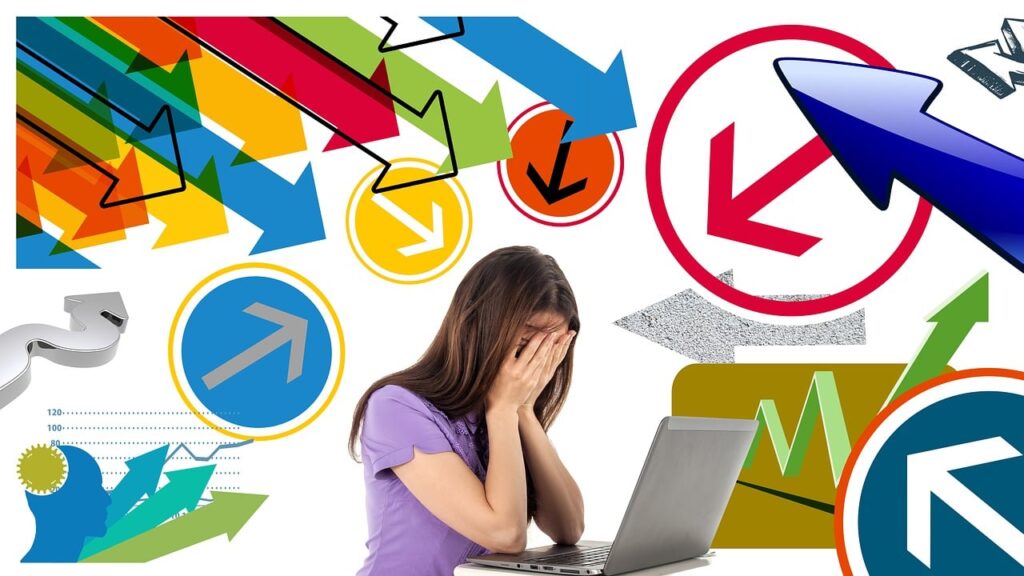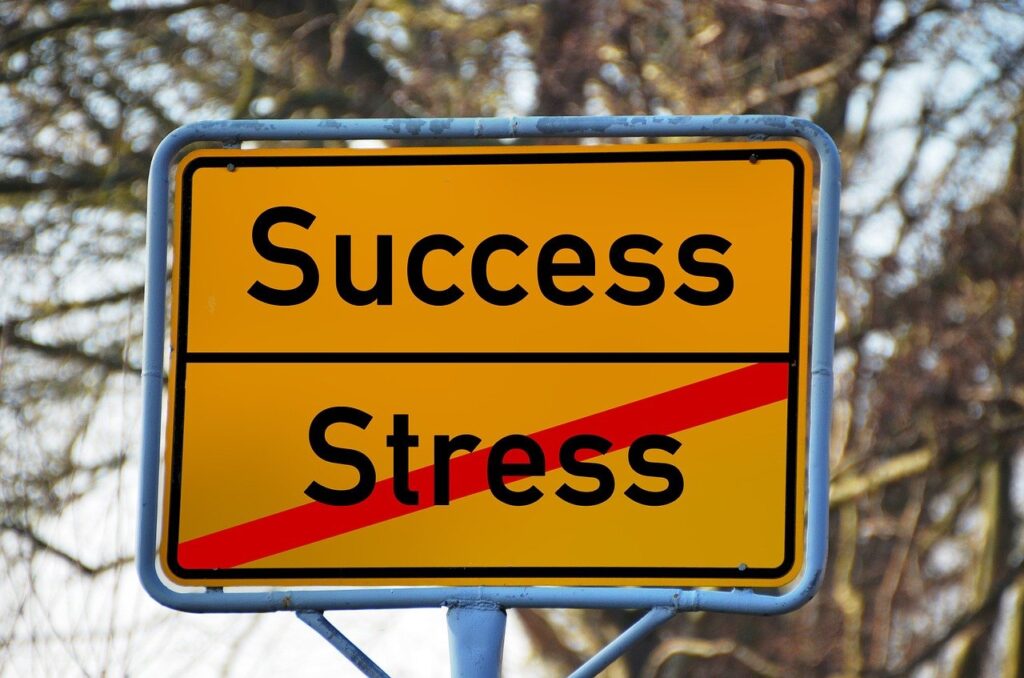Table of Contents
Understanding Stress in the Modern World
The fast-paced lifestyle and work culture of modern times have made stress a ubiquitous part of our lives. Stress is a natural response to any perceived threat, danger or challenge which can trigger physical, emotional, and behavioral changes in our body.
Stress is not always bad as it helps us stay alert, focused, and motivated to perform better. But when stress becomes chronic or excessive due to continuous exposure to various stressors such as work pressure, financial issues, relationship problems, health concerns etc., it can have negative effects on our mental and physical well-being.
In fact, according to research by American Psychological Association (APA), chronic stress has been linked with many health problems like anxiety disorders; depression; insomnia; headaches; gastrointestinal issues; high blood pressure and even heart disease among others.
To manage stress effectively in this fast-paced world we need first understand what triggers this unwanted response so that we can learn how best respond. Stress triggers may differ from person-to-person depending upon their personality types and individual circumstances. Some common causes of workplace-related stress are:
- Excessive workload/pressure
- Poor management practices
- Lack of support/ help from coworkers or superiors
- Bullying/harassment at work or home
- Job insecurity
- Poor working conditions/environment
The more you know about what stresses you out the easier it is to find ways manage it before becoming a problem for your overall well-being.
The Impact of Fast-Paced Lifestyles on Mental Health
Living in a fast-paced world can come with many challenges that take a toll on our mental health. With so much pressure to keep up, it’s easy to feel overwhelmed and burnt out. The constant flow of information bombarding us from every angle can cause stress, anxiety, and even depression.
One of the most significant impacts of living in a fast-paced world is chronic stress. Stress is a natural response when we encounter situations that require heightened levels of attention or effort. However, when we experience high levels of stress for extended periods, our bodies go into overdrive mode leading to increased irritability, trouble sleeping and mood disturbances.
The prevalence of technology use contributes to making life move at an ever-increasing pace which overall has impacted mental health negatively as well. For example one could be expected to reply back instantly during work hours or even outside them without any regards for personal time or space.
The expectation constantly placed on individuals by social media can lead them feeling inadequate as compared to their peers which further exacerbate problems caused by societal expectations like competition based on wealth etc.
Increased Anxiety
Anxiety disorders are amongst the most common type if illness affecting people around the globe; according to World Health Organization (WHO) more than 300 million suffer from such ailments worldwide where majority being women causing economic losses due o decreased productivity among others issues
.
In a competitive environment as per modern times it’s not uncommon for individuals especially young professionals experiencing peer pressure taking its affect their performance creating feelings inadequacy thus increasing anxiety furthering creation attributed these negative feelings towards themselves.Adjustment difficulties while changing environments might also play significant role here requiring help regarding addressing adjustment process difficulties faced.
Techniques for Coping with Everyday Stressors
Everyday stressors can range from minor irritants to major challenges, but with the right techniques you can learn to manage them effectively. Here are some proven strategies for coping with stress:
1. Exercise regularly:
Physical activity has been shown to reduce the symptoms of anxiety and depression by releasing endorphins and promoting better sleep quality.
2. Practice deep breathing:
Taking slow, deep breaths can help regulate your heart rate and lower blood pressure, reducing feelings of tension or anxiety.
3. Get enough restful sleep:
Sleep is essential for our bodies and minds to recover each day. Make sure you get at least 7-8 hours of good quality sleep per night to feel well-rested.
4. Use humor as a coping mechanism:
A hearty laugh releases endorphins in the body which can decrease pain sensation while also relaxing muscles thereby reducing stress levels significantly.
5. Maintain healthy eating habits:
Eating a balanced diet rich in fruits, vegetables, lean protein, whole grains and low-fat dairy products provides important nutrients that sustain energy levels required during high-stress periods
. With these techniques in mind, you’ll be equipped to handle everyday stressors more easily than ever before.
Mindfulness and its Benefits in Managing Stress
One effective strategy for managing stress in a fast-paced world is practicing mindfulness. Mindfulness refers to the practice of being fully present and engaged in the current moment, without judgment or distraction.
Mindfulness can help individuals reduce their levels of stress by promoting a sense of calmness and relaxation. By focusing on the present moment, rather than worrying about the past or future, individuals can feel more grounded and centered despite external pressures.
In addition to reducing stress levels, there are numerous other benefits associated with practicing mindfulness. For example:
- Improved Mental Clarity: Practicing mindfulness can improve cognitive functioning by increasing mental clarity and focus.
- Better Sleep: Mindfulness practices have been shown to improve sleep quality, which in turn can lead to reduced stress levels.
- Elevated Mood: Mindfulness practices release endorphins into your system naturally lifting your mood
To incorporate mindfulness into daily life individuals may start with simple exercises such as breathing techniques or body scans while setting aside distractions like cell phones during eating times etc.. With continued practice you will find that incorporating small mindful habits will become natural routine leading towards a healthier lifestyle both physically and mentally
If you’re looking for additional resources on how to build healthy habits around exercising mindfulness consider meeting with an expert such as certified therapists who specialize in treating symptoms related to anxiety disorders through therapies combining CBT along with meditation exercises if required focused solely on managing one’s emotions effectively.
Building Resilience: Strategies to Boost Emotional Strength
Life can throw us unexpected curveballs, and it’s important to be prepared for these challenges by developing emotional resilience. Resilience is the ability to cope with adversity and bounce back from difficult situations.
To build resilience, there are various strategies that individuals can incorporate into their daily lives:
- Cultivate a positive mindset: Focusing on negative thoughts depletes our emotional strength. By cultivating a positive attitude towards life, we create room for hope and optimism in challenging times.
- Maintain healthy relationships: Social connections foster feelings of belongingness and support during tough times, helping us stay resilient when we need it most.
- Create a self-care routine: Prioritizing physical health through regular exercise, adequate sleep and proper nutrition helps build endurance against stressors. It’s also essential to take time out for ourselves regularly.
- Practice mindfulness techniques: Mindfulness practices such as meditation or yoga have been shown to reduce stress levels while enhancing inner peace and psychological flexibility—key characteristics of mental resilience.
- Cultivate problem-solving skills: Learning how to approach problems constructively rather than avoiding them may help increase one’s sense of control over stressful events thus improving overall resilience levels
In summary, building inner-strength isn’t an overnight process but takes intentional effort over time. Incorporating these strategies into your lifestyle will enhance your capacity to adapt during tough times fostering wellbeing.. . So why don’t you start today?
.Expert Advice: Seeking Help from Professionals
While there are many techniques and strategies you can use to manage stress on your own, sometimes it’s necessary to seek professional help. If you’re struggling with chronic stress or anxiety that is negatively impacting your daily life, a mental health professional can provide valuable support and guidance.
Therapy: A therapist or counselor can offer talk therapy sessions that are tailored to your unique needs. This type of therapy may involve cognitive-behavioral techniques (CBT) that teach skills for managing emotional reactions and changing negative thought patterns. Therapy allows you to express yourself in a safe space, learn new coping mechanisms, and gain insights into the root causes of your stress.
Medication: If you have severe anxiety or depression related to stress, medication prescribed by a psychiatrist may be helpful in reducing symptoms. Antidepressants or anti-anxiety medications may be used alongside therapy as part of an overall treatment plan.
Meditation: Some people find meditation helps them better cope with stress-related symptoms such as insomnia and fatigue. Research has shown that mindfulness-based practices like meditation can improve mood, reduce perceived levels of distress associated with stressful situations, lower heart rate and blood pressure levels which iare adverse effects often caused by long-term exposure to high oxidative stress environments [(source)]
If you decide seeking out the advice from experts should be part of addressing how best to manage ongoing stresses suffered because living in this modern fast-paced world; finding a qualified practitioner who specializes in dealing with these issues is one way forward. Or making sure they have some knowledge about workplace stresses if work conditions contribute significantly would also assist them when treating different case scenarios effectively




